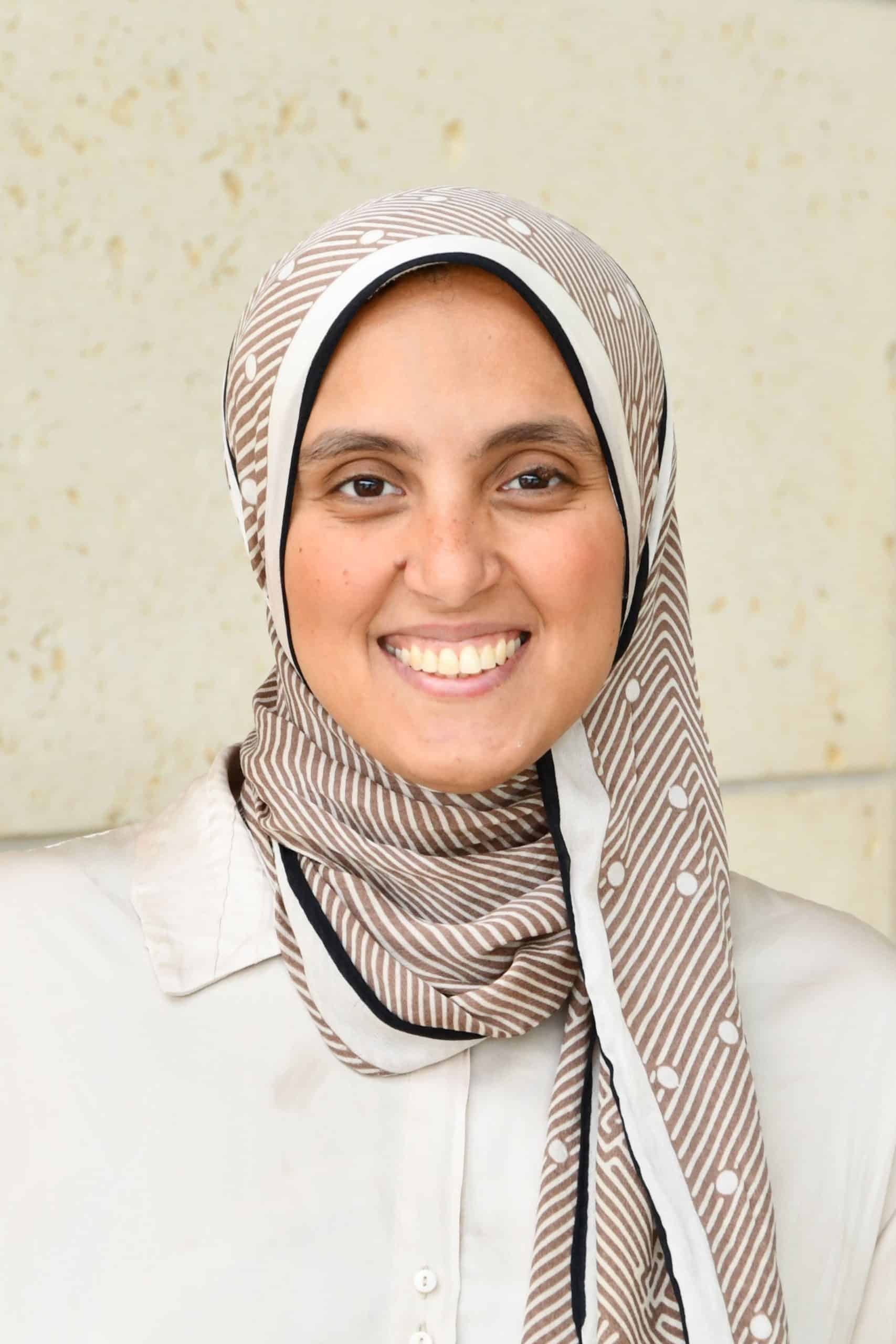The FocalPlane correspondents: Mai Rahmoon
Posted by Helen Zenner, on 11 July 2023
At the beginning of the year, we announced that we will be working with three FocalPlane correspondents, who will be helping us to develop and write content for FocalPlane. We caught up with each of them to chat about their research backgrounds and the topics that they’re excited to write about.
Our second interview is with Mai Rahmoon, a fellow at the HHMI Janelia Advanced Imaging Center (AIC). Mai started out as a molecular biologist, researching cancer metabolism, but fell in love with microscopy when she came across the African BioImaging Consortium (ABIC). This prompted a career shift that has seen Mai move from Egypt to the US and the AIC. Look out for Mai’s upcoming FocalPlane posts highlighting microscopy communities.

Congratulations on being selected as one of our new FocalPlane correspondents. How did you find out about the role, and why did you decide to apply for it?
I knew about FocalPlane from Twitter. I enjoy reading the tweets and posts about imaging scientists, the life of the leading scientists and about the new technology in imaging and image analysis. So, when I was surfing the internet, I checked FocalPlane, found this position and I applied. I thought it would be a good opportunity to connect with imaging scientists and learn more about microscopy and image analysis.
Have you done any science writing before, or will this be a new experience for you?
It’s a whole new experience for me and I’m very excited to learn. I have done some interviews for FocalPlane already, and now I just need to sit down and put the blogs together, just like publishing papers! But this type of science writing is a whole new field for me. I think it is important to learn more about writing, because I believe that science is not also for only for scientists and researchers, it is also for the public. Everyone should know what is happening in the science, the new technologies and new cool stuff that is being discovered. And part of science writing is ensuring that the voice of the scientist is heard.
What has been your career path so far? And what is your current research focus?
I did my master’s and PhD in Egypt at the German University in Cairo. My PhD was also in collaboration with Zewail City of Science and Technology. It was focused on molecular biology, and I was interested in studying cancer as it is such a common disease in Egypt. So, I had this passion to learn to learn and research cancer, towards finding a cure. I was studying cancer metabolism, using yeast as a model to study the molecular pathways and metabolic dysregulation in cancer cells. This was the focus of my postdoc at Zewail City as well, until I came across ABIC, the African BioImaging Consortium (https://www.africanbioimaging.org), and their work in Africa to help researchers to perform cutting-edge science. I’d never really used microscopy in my research before, except for wide-field epifluorescence microscopy, but I found it really interesting. I joined ABIC and went to the Imaging Africa Workshop in 2022, which was conducted by the AIC team in Cape Town, and I became passionate about imaging technologies and imaging analysis, and how imaging can change the course of research. At this point, I knew I wanted to pursue a career path as an imaging scientist. So, I applied for the AIC Advanced Microscopy Fellowship at Janelia and, thankfully, I got accepted.
At this point my perspective had changed, and my career path had changed. Now, I’m not on the traditional academic path, I’m working in a microscopy center. I find it more exciting and I think that it’s rewarding because I feel like we get to know about all the research that’s happening in the whole world and even have some input! Intellectually, it’s very stimulating; everyday, you’re facing a new challenge and discovering new stuff. In my current role at the AIC, I’m working with microscopy, imaging analysis, and also helping in disseminating microscopy techniques and microscopy hardware to scientific communities with limited resources.
What are your hopes for ABIC and research in Africa in the in the future?
ABIC is growing and I think that within the next couple of years, it’s going to have a real impact and change African research putting it on a new level. There are a lot of passionate and visionary researchers that are joining this community, and ABIC is combining all their effort and passion to add to the research community in Africa. The launch of the Africa Microscopy Initiative (AMI) as a multi-pronged initiative building the African capacity for microscopy through training, infrastructure and open-access programs (https://www.microscopy.africa) will enormously change the African scientific research scope. Researchers can now travel to the AMI Imaging Centre and access advanced microscopes. It’s going to help a lot of researchers do their research, and do the research that fits African research needs. The facility is the first of its kind in Africa. At the moment, like me, a lot of African researchers are going to different countries and to different training centers with the intention of taking back the ideas that we have learned and to disseminate this knowledge in our own countries and throughout Africa. So, I can tell you that within the next couple of years, ABIC is going to boom because of the collaborations that connect the people and the ideas together. There are a lot of communities and funding agencies, such as EuroBioImaging, BioImaging North America (BINA), AIC and the Chan-Zuckerberg Initiative, that are helping, so it’s really going to be something. My hopes are very high, and my dreams are very big!
What sort of topics are you excited to write about for FocalPlane?
Currently, I’m working on a ‘How it started’ series. It’s about narrating all the behind-the-scenes efforts; the vision, the planning and the work, that go into the emerging microscopy communities and into setting up core facilities. For example, how did BINA and EuroBioImaging start? What was the vision behind the AIC? I hope that this series will help people that want to start their own community, or their own core facility. I’ve started with Global BioImaging and EuroBioimaging, and I also did an interview with the AIC, so I have three blog posts that I need to share with you guys! It’s been very exciting to do these interviews. Every experience is different. Every community has stories of its own challenges and how they tackle them. I can’t wait to share it with the whole community and for everyone to have a glimpse of what is happening. And if someone wants to do something like this in their own country, it’s going to be like a good reference for them, and to excite and encourage them to start their own community, as well as drawing attention to these established communities.
We’ve already touched on this a little, but what are you personally hoping to gain from the experience of being a FocalPlane correspondent?
First of all, because science writing is a new field for me, joining FocalPlane is challenging me to develop a new skill. I love writing and all of my life I’ve been passionate about writing, but I’ve never written scientific blogs, so this is a first for me. It is also a good way of networking; reaching out for these interviews is a very good way of meeting new people, new ideas and new communities. I find it very motivational to meet different people who have different ideas, different motivation, different challenges. So, I think that it’s very important for my personal growth and professional growth.
What’s your favourite type of microscopy?
I would say that lattice light sheet is my favourite at the moment.
What do you like doing in your spare time?
I love playing sports, especially CrossFit. I also love to read. Stories are a place to escape and forget about the rest of the world! And I love spending time with family and friends, especially experiencing new places in their company. However, most of my time I spend playing with my two year old son, Omar.


 (No Ratings Yet)
(No Ratings Yet)
Love the interview .. keep going ! Your family and friends are supporting you all the way from Egypt